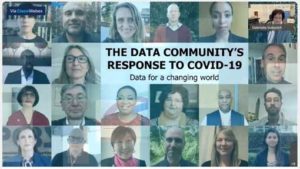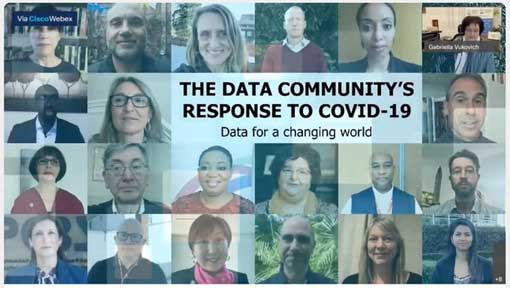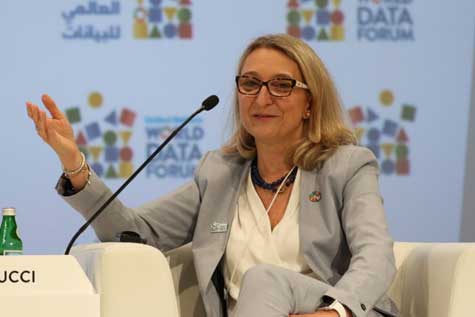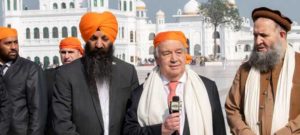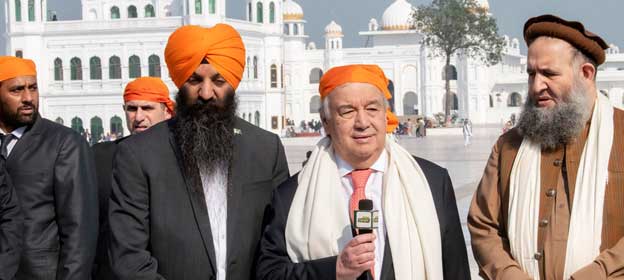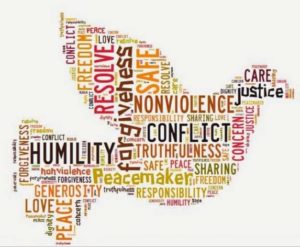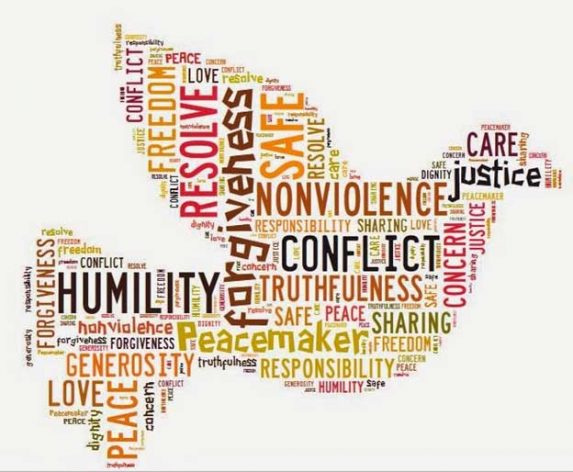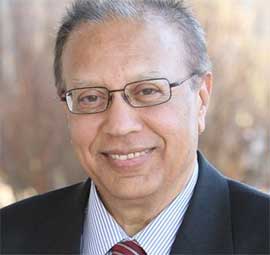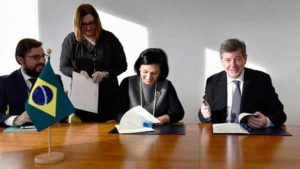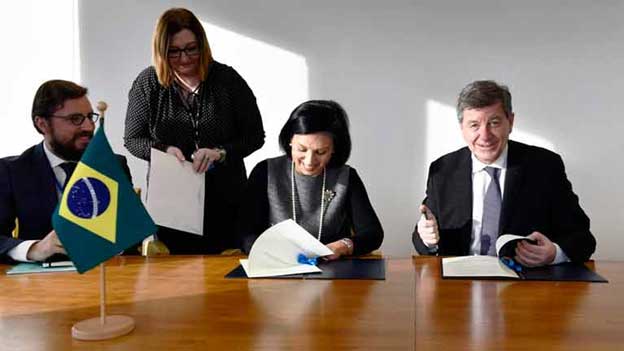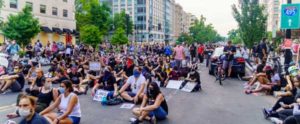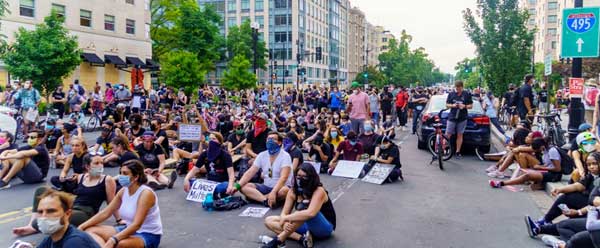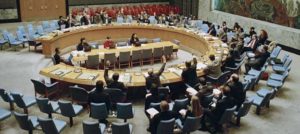
Civil Society, Democracy, Featured, Gender, Global, Global Governance, Headlines, Human Rights, IPS UN: Inside the Glasshouse, TerraViva United Nations, Women in Politics
Ambassador Anwarul K. Chowdhury was Under-Secretary-General and High Representative of the UN (2002-2007); former Permanent Representative of Bangladesh to UN (1996-2001); and globally acclaimed as the initiator of the precursor decision leading to the UN Security Council Resolution (UNSCR) 1325 as President of the UN Security Council in March 2000.
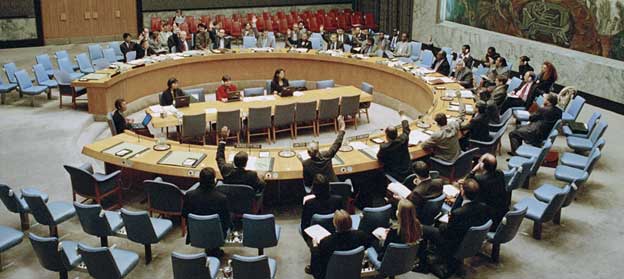
On October 31 2000, the Security Council unanimously adopted Resolution 1325 (2000) calling for participation of women in the prevention, management, and resolution of conflicts. Credit: United Nations
– In 2010, at the opening session of the civil society forum observing the tenth anniversary of UN Security Council Resolution 1325 on “Women and Peace and Security”, I had the honor to declare 1325 as “the common heritage of humanity” indicating the wide-ranging nature of the potential benefits which will flow from the landmark resolution’s full and effective implementation by all at all levels.
On 31 October, the world will be observing the 20th anniversary of 1325. The United Nations Security Council held a virtual session with wider participation of UN Member States on 29 October to observe the anniversary.
Today, in Namibia, the country which presided over the Security Council as it adopted UNSCR 1325, President Dr. Hage Geingob is launching the International Women’s Peace Center located in Windoek.
Anniversaries become meaningful when there is a serious stock-taking of the progress and lack of it and thereafter, charting of a realistic, determined roadmap and course of action for the next years. Of course, it is a pity that COVID-19 pandemic has setback our plans and enthusiasm for the observance in a major way.
The core message of 1325 is an integral part of my intellectual existence and my humble contribution to a better world for each one of us. To trace back, a little more than 20 years ago, on the International Women’s Day on 8 March in 2000, as the President of the Security Council representing my country Bangladesh, following extensive stonewalling and intense resistance from the permanent members, I was able to issue an agreed statement [UN Press Release SC/6816 of 8 March 2000] on behalf of all 15 members of the Council with strong support from civil society that formally brought to global attention the contribution women have always been making towards preventing wars and building peace.
The Council recognized in that significant, norm-setting statement that “peace is inextricably linked with equality between women and men”, and affirmed the value of full and equal participation of women in all decision-making levels.
That is when the seed for UNSCR 1325 was sown. The formal resolution followed this conceptual and political breakthrough 31 October of the same year with Namibia at the helm, after tough negotiations for eight months, giving this issue the long overdue attention and recognition that it deserved.
The very first paragraph of this formal resolution starts with a reference to the 8 March 2000 statement identifying the rationale and tracing the history of “Women and Peace and Security” at the Security Council. The inexplicable silence for 55 long years of the Security Council on women’s positive contribution was broken forever on the 8th of March 2000.
Adoption of 1325 opened a much-awaited door of opportunity for women who have shown time and again that they bring a qualitative improvement in structuring peace and in post-conflict architecture. We recall that in choosing the three women laureates for the 2011 Nobel Peace Prize, the citation referred to 1325 saying that “It underlined the need for women to become participants on an equal footing with men in peace processes and in peace work in general.”
1325 is the only UN resolution so specifically noted in the citations of the Nobel Prizes. That is the value, that is the essence and that is the prestige of UNSCR 1325 in the global community.
The historic and operational value of the resolution as the first international policy mechanism that explicitly recognized the gendered nature of war and peace processes has, however, been undercut by the disappointing record of its implementation, particularly for lack of national level commitments and global level leadership.
The driving force behind 1325 is “participation”. I believe the Security Council has been neglecting this core focus of the resolution. There is no consideration of women’s role and participation in real terms in its deliberations.
The poor record of the implementation of 1325 also points to the reality of the Security Council’s continuing adherence to the existing militarized inter-state security arrangements, though the Security Council is gradually, albeit slowly, accepting that a lasting peace cannot be achieved without the participation of women and the inclusion of gender perspectives in peace processes.
The Council has also met with women’s groups and representatives of NGOs during its field missions on a fairly regular basis. The first such meeting was held with women’s organizations in Kosovo in June 2001 when I was leading the Security Council mission to that country as the Council President, over the unwillingness of the UN appointed Mission Chief in Kosovo.
My work has taken me to the farthest corners of the world and I have seen time and again the centrality of women’s equality in our lives. This realization has now become more pertinent in the midst of the ever-increasing militarism and militarization that is destroying both our planet and our people.
Women’s equality makes our planet safe and secure. When women participate in peace negotiations and in the crafting of a peace agreement, they have the broader and long-term interest of society in mind.
It is a reality that politics, more so security, is a man’s world. Empowering women’s political leadership will have ripple effects on every level of society. When politically empowered, women bring important and different skills and perspectives to the policy making table in comparison to their male counterparts.
Women are the real agents of change in refashioning peace structures ensuring greater sustainability.
As the UN adopted the SDGs in 2015, 1325 was about to observe its 15th anniversary and many were wondering why Goal 5 on women and girls and Goal 16 on peace and governance did not make any reference to the widely-recognized 1325. This disconnect between the two main organs of the UN is unacceptable to all well-intentioned supporters of the world body.
That global reality is dramatically evidenced in the fact that the UN itself despite being the biggest champion of women’s equality has failed to elect a woman secretary-general to reverse the historical injustice of having the post occupied by men for its more than seven-decades of existence.
On the occasion of the 20th anniversary of 1325, I have been invited to speak at many virtual events and interviews from different parts of the world. I am asked again and again what could be done for the true implementation of 1325 to make a difference. In my considered judgment, I have identified four areas of priority for next five years.
One, Leadership of the UN Secretary-General.
What role the Secretary-General (SG) should play? Secretary-General Guterres has done well on women’s parity in his senior management team. It would be more meaningful to expand that parity for the Special Representatives of Secretary-General (SRSG) and Deputy SRSGs, Force Commanders and Deputies at the field levels with geographical diversity.
Many believe there is a need for the Secretary-General’s genuinely proactive, committed engagement in using the moral authority of the United Nations and the high office he occupies for the effective implementation of 1325.
Would it not have a strong, positive impact on countries if their heads of state/government received a formal communication from the Secretary-General urging submission of respective National Action Plans (NAPs)?
Implementation of 1325 should be seriously taken up by the SG’s UN system-wide coordination mechanism. UN Resident Coordinators who represent the SG and UN country teams should assist all national level actors in preparation and implementation of NAPs.
A “1325 Impact Assessment” component with concrete recommendations needs to be included in all reports by SG to the Security Council asking their inclusion in all peace and security decisions taken by the Council.
Gender perspectives must be fully integrated into the terms of reference of peace operations by the United Nations. Improving the gender architecture in field missions and at headquarters; improving gender conflict analysis and information flows; and accountability for sexual exploitation and abuse by UN personnel do need SG’s engaged leadership to make progress.
A no-tolerance, no-impunity approach is a must in cases of sexual exploitation and abuse by UN personnel and its regional partners in hybrid missions. UN is welcomed in countries as their protectors – it cannot become the perpetrators themselves!
1325 implementation has an additional obstacle of overcoming a culture among Council members and within the UN system that views gender issues as an “add-on” component, rather than being one of the central tenets which support conflict prevention and underpin long-term stability. SG should take the lead in changing this culture in a creative and proactive way.
Two, National Action Plans (NAPs)
As we observe the anniversary of 1325, it is truly disappointing that a mere 85 countries out of 193 members of the UN have prepared their National Action Plans (NAPs) for 1325 implementation in 20 years.
It should be also underscored that all countries are obligated as per decisions of the Security Council (as envisaged in Article 25 of UN Charter) to prepare the NAP whether they are in a so-called conflict situation or not.
In real terms, NAPs happen to be the engine that would speed up the implementation of 1325. There are no better ways to get country level commitment to implement 1325 other than the NAPs. I believe very strongly that only NAPs can hold the governments accountable.
There is a clear need for the Secretary-General’s attention for the effective implementation of 1325. Though NAPs are national commitments, it can be globally monitored. SG can also target 50 new NAPs by the 21st anniversary of 1325.
Three, Mobilizing Men for Implementing 1325
Patriarchy and misogyny are the dual scourges pulling back the humanity away from our aspiration for a better world. Gender inequality is an established, proven and undisputed reality – it is all pervasive. It is a real threat to human progress! UN Secretary-General Antonio Guterres has lamented that “… everywhere, we still have a male-dominated culture”.
Unless we confront these vicious and obstinate negative forces with all our energy, determination and persistence, our planet will never be a desired place for one and all.
Women’s rights are under threat from a “backlash” of conservatism and fundamentalism around the world.
We are experiencing around the globe an organized, determined rollback of the gains made as well as new attacks on women’s equality and empowerment. Yes, this is happening in all parts of the world and in all countries without exception.
Men and policies and institutions controlled by them have been the main perpetrators of gender inequality. It is a reality that politics, more so security, is a man’s world. It is also a reality that empowered women bring important and different skills and perspectives to the policy making table in comparison to their male counterparts.
We need to recognize that women’s equality and their rights are not only women’s issues, those are relevant for humanity as a whole – for all of us. This is most crucial point that needs to be internalized by every one of us.
With that objective, we launched the initiative for “Mobilizing Men as Partners for Women, Peace and Security” on 20 March 2019 in New York with the leadership of Ambassador Donald Steinberg, taking the vow to profess, advocate and work to ensure feminism as our creed and as our mission.
Four, Direct involvement of civil society
Another missing element is a greater, regular, genuine and participatory involvement of civil society in implementing 1325 both at national and global levels. The role and contribution of civil society is critical. I would pay tribute to Women’s International League for Peace and Freedom (WILPF) and Global Network of Women Peacebuilders (GNWP) for making creative and qualitative contributions for the implementation of 1325 for the last two decades.
Civil society should be fully involved in the preparation and implementation of the NAPs at the country levels. At the global level, the UN secretariat should not only make it a point to consult civil society, but at the same time, such consultations should be open and transparent.
We should not forget that when civil society is marginalized, there is little chance for 1325 to get implemented in the real sense.
Let me reiterate that Feminism is about smart policy which is inclusive, uses all potentials and leaves no one behind. I am proud to be a feminist. All of us need to be. That is how we make our planet a better place to live for all.
We should always remember that without peace, development is impossible, and without development, peace is not achievable, but without women, neither peace nor development is conceivable.
Let me assert again that observance of anniversaries becomes meaningful when they trigger renewed enthusiasm amongst all. Coming months will tell whether 1325’s 20th anniversary has been worthwhile and able to create that energy.
Let me end by reiterating that “If we are serious about peace, we must take women seriously”.

